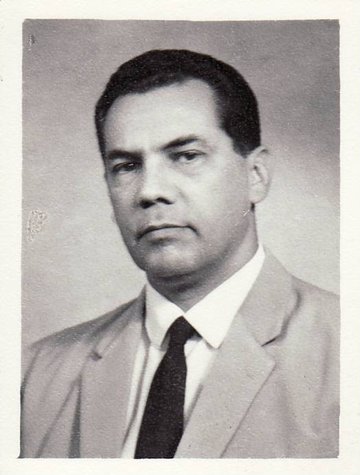
Arjan Chopra
‐
Medical doctor and specialist in tropical medicine
Other names
Arjan Dev Chopra
Place of birth
Date of arrival to Britain
Place of death
Calgary, Canada
Date of time spent in Britain
1923 (visiting family), 1938-47 (studying at the University of Cambridge and St. Bartholemew’s Hospital Medical College, University of London), 1956-1957 (studying at the London School of Hygiene and Tropical Medicine, University of London)
About
Arjan Chopra was born in 1920 in Lahore, Punjab, then British India, where his father was practicing as a barrister at the High Court. The ancestral home of the family, where Chopra grew up, was a haveli opposite the railway station of the nearby town of Gujranwala, on the Grand Trunk Road, with entrances for elephants and carriages. Reflecting historical alliances, it was situated next door to both the house of the Sikh general Hari Singh Nalwa and the birthplace of Maharajah Ranjit Singh. Antecedents of the family included a minister at the court of the Mughal Emperor Akbar, and the nineteenth century rulers of the southern half of the Punjab at Multan, Diwans Sawan Mal and Mulraj Chopra.
Chopra’s grandfather, Diwan Ganga Ram, was also a lawyer, practising in Gujranwala and Lahore, and a landowner, after whom the holdings in Jandiala Sher Khan were called, namely: Kot Ganga Ram. Early on he was converted to the Arya Samaj movement by Swami Dayananda himself. However, due to an illness, Ganga Ram died at a young age, leaving behind a widow and three children. The eldest (Chopra’s father), Iqbal Chand Chopra, CBE, QC, was educated at King’s Inns, Dublin, and the Middle Temple, London. He would later become a member of the Legislative and Executive Councils of Tanganyika, and co-owner with Dr J. T. Williamson of the world’s largest diamond mine at Mwadui, in present day Tanzania. I. C. Chopra famously presented the pink diamond to Queen Elizabeth II for the occasion of her wedding and at the time of her coronation.
Despite the influences of the legal profession in the family, there were other influences of the medical profession that led Chopra to become a doctor. For one, it was his father’s will, but other inspirations came from Chopra’s uncle, Lt-Col Diwan Chand Chopra, OBE, of the Indian Medical Service (IMS), later to perish at the fall of Singapore, and a cousin of his father’s, Col Sir Ram Nath Chopra, CIE, also of the IMS (and later appointed Honorary Physician to King George VI and regarded to be the ‘Father of Indian Pharmacology’, according to an Indian postage stamp minted in his memory).
Consequently, after completing his studies at Bishop Cotton School in Simla, Chopra joined the Medical College of St Bartholemew’s Hospital of the University of London (nicknamed ‘Barts’) in 1939. As his parents were by then living in the interior of Tanganyika, East Africa, Chopra was entrusted to the guardianship of Chuni Lal Katial, a family friend from Lahore and the IMS, and a pioneer of public health in Britain. Three months after the outbreak of the Second World War, to ensure continuity of medical education as part of the war effort, the pre-clinical part of the Barts Medical College was relocated to Queens’ College, Cambridge, where Chopra spent the next three years of his education. He returned to London in 1943 to complete the clinical part of his education during the continued bombardment of the city, learning to treat air raid casualties and airmen suffering acute burns, in what were the early practices of plastic surgery.
Chopra qualified as a doctor in 1947. He subsequently undertook an advanced Diploma in Tropical Medicine and Hygiene at the London School of Hygiene and Tropical Medicine of the University of London in 1957. He was elected a Fellow of the Royal Society of Tropical Medicine and Hygiene, and the Royal College of Physicians (FRCP).
In the 1950s, Chopra practised medicine in Mombasa, Kenya, and in the 1960s, he practised in Mwanza and Arusha, Tanzania. While in East Africa, in 1959 he was appointed Honorary Game Ranger of Serengeti National Park to combat the growing problem of illicit poaching of wildlife. He was also instrumental in the 1963 conservation experiment of translocating threatened rhinoceroses to Rubondo Island in Lake Victoria.
After emigrating to Canada, Chopra continued to practise medicine from the 1970s until his death in 2003.
Bansal, Bobby Singh, The Punjab Chiefs: The Lost Glory of the Punjab Aristocracy in India and Pakistan (New Delhi: Himalayan Books, 2020)
Chopra, Jarat, ’In My Father’s Day’, The Bridge 22 (Spring 2025), pp. 14-15.
CBC radio programme ’Between Ourselves’, episode broadcast ‘In Search of John Williamson’ (13 December 1967)
Image credit
Photograph of Dr Arjan Chopra, MD. Copyright Jarat Chopra
Entry credit
Jarat Chopra
